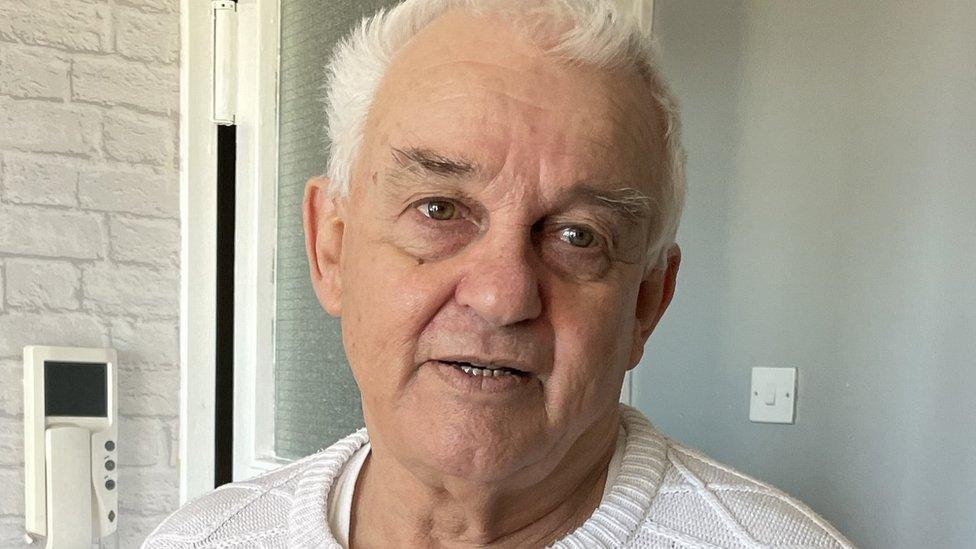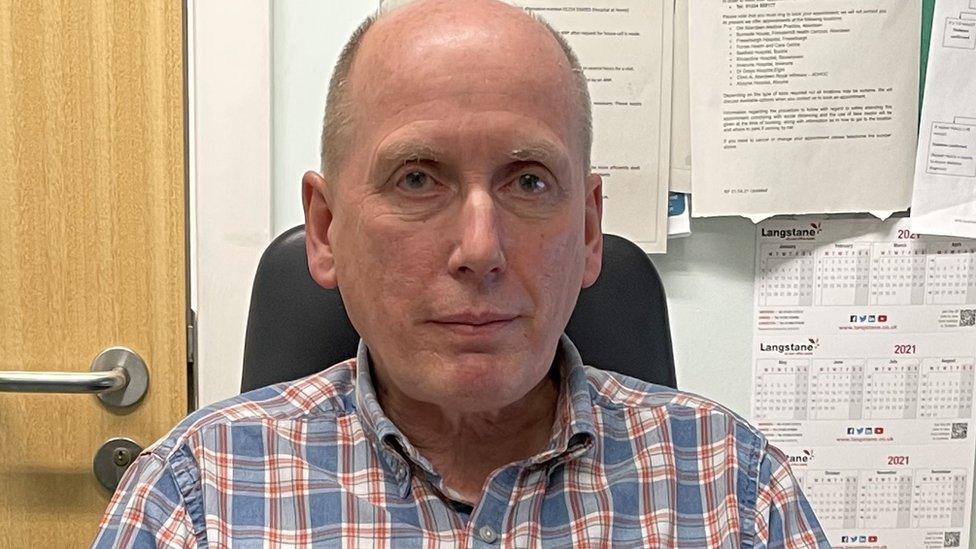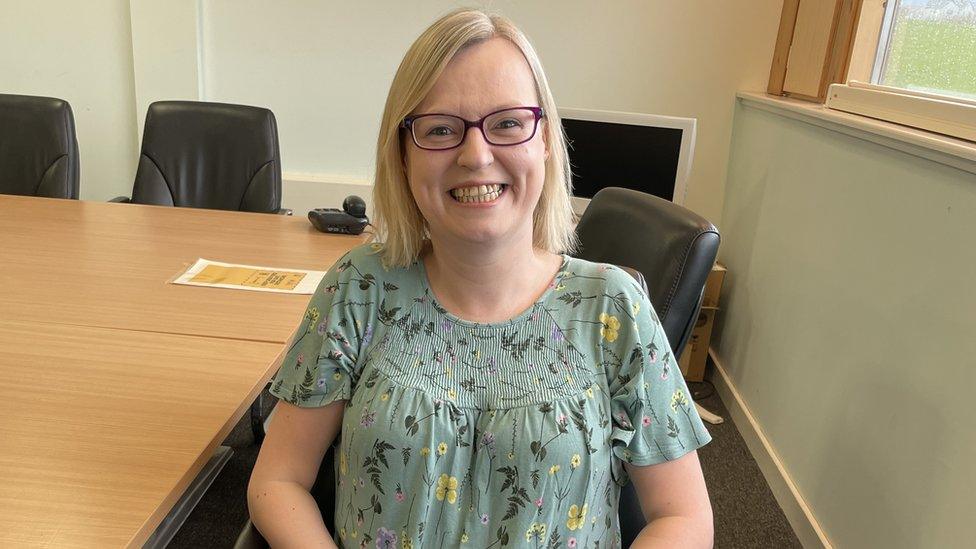The GP workers helping people get their life back
- Published

Steve says the link worker helped him get his life back together
For 75-year-old Steve, life was looking bleak until a specialist link worker in his GP practice helped him with the social causes behind his poor mental health.
The city of Aberdeen is one of the few places in Scotland that has a link worker in every GP practice.
The idea is to link patients to the right support with problems such as finances, housing and isolation and free up GPs to deal with medical problems.
Steve says he faced isolation, financial problems, and relentless torment from neighbours when he moved from his house into a flat. As a result, he just didn't want to get up in the morning anymore.
But then he got a phone call offering help.
"He helped me through my problems, helped me to get my benefits sorted out, because I really wasn't aware of anything at that time," Steve says.
"Basically, he took me by the hand and helped me.
"He got my life back together," he says, adding that he was even helped to move into a new flat.
Steve now looks after his grandchildren every two weeks and says his life is pretty good.
The service is run by the Scottish Association for Mental Health and funded by the local health and social care partnership.

Dr Alasdair Jamieson says the number of patients with mental health problems is increasing
Across the city, Dr Alasdair Jamieson has been a GP for over 30 years and estimates that 30% to 40% of the patients coming through his door have mental health-related problems - and the number is increasing.
"Mental health problems are here, they were increasing before the pandemic and they're going to increase further," he told BBC Scotland.
Dr Jamieson says there are a variety of reasons for this and believes the challenges will only increase as a result of the impending cost-of-living crisis.
But as demand increases, so do the pressures facing GPs.
"There is a limit to the capacity we have, and currently it does not adequately meet the needs for the numbers of people presenting with mental health problems and the complexity of the issues presented to us," he says.
"I think we have a limitation in terms of both our time and perhaps within our range of skills as well."
Dr Jamieson adds that exploring the causes of the mental health issues is not readily done in 10 to 15 minutes.
Unlike with a GP appointment, the link worker service allows patients to spend as much time with their practitioner as they need.

Catherine Anderson says she looks at the bigger picture of what is affecting patients
Catherine Anderson, the team leader of the service, says it is helping people to get the support that they need within better timeframes.
"Quite often, people might come to the doctor with things like low mood, which has been caused by losing their job, or they might be having issues with their finances which in turn affected their housing," she says.
"So when you actually look at that bigger picture, once you've discussed what their needs are, you've already improved their quality of life because they've had that long conversation with somebody."
Of the 1,898 referrals made to the service in 2021, 852 involved mental health directly - while 659 involved benefits and finances, and 192 were related to isolation.
Crucially, the service also helps "cut out the middle man" by letting anyone attached to the GP surgery make a referral, including receptionists.